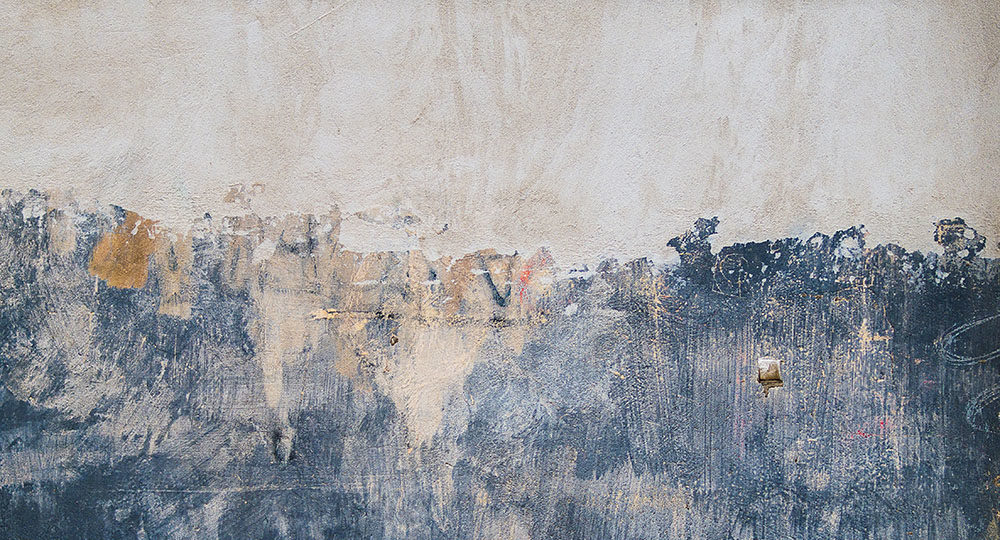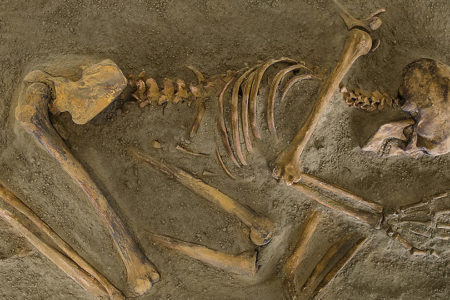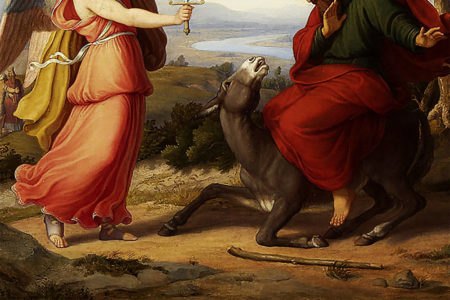The Facilitators
God called the Levites to Manage everything concerning the tabernacle. From priests to janitors, they did it all. And without them, Israelite worship would have been a very different experience.
In 2003, President George W. Bush surprised American troops stationed in Baghdad, Iraq, with a visit for Thanksgiving dinner. “I was just looking for a warm meal somewhere,” he joked. More than 600 soldiers from the 1st Armored and 82nd Airborne Divisions were shocked and grateful, as they enjoyed a Thanksgiving meal they would never forget.
Few knew about the undercover mission. Even the president’s own family expected him home for Thanksgiving. The trip required two jumbo jets, dozens of vehicles, a network of staff, highly qualified Secret Service agents, and a security detail on the ground—all working together with one goal in mind: to protect the president of the United States and serve the military. The mission proved a total success, and the troops’ morale was strengthened by the presence of their commander-in-chief.
Like the presidential staff, the Levites had a mission: to protect the holiness of God and serve the people of Israel. The book of Numbers explains how they ministered at the Tabernacle day in and day out, facilitating the relationship between God and His people, Israel.
Many often typecast the Levites as priests who were in charge of Israel’s sacrificial system. Though the association is not wrong, it doesn’t provide the full picture of the Levitical ministry. All priests were Levites, but not all Levites were priests. The term Levites refers to the entire tribe of Levi, which God chose for His service. He made the Levites His own when He said, “The Levites shall be Mine” (Num. 3:12).
God called them to manage the Tabernacle’s ecosystem. From priests to janitors, the Levites did it all. Think of those in our offices or churches who lock the building at night, empty the trash, polish the furniture, and vacuum the carpets. Without them, these places would be in complete disarray—interfering with our ability to work and worship. Many of the Levites were the unsung heroes who made worship possible for the other tribes of Israel so their faith could be strengthened in the presence of their God.
Since God designed the Tabernacle to be a mobile sanctuary, the Levites had the responsibility of transporting, maintaining, and servicing it. The duties required a special team of people to break down each element properly, pack it according to God’s specific instructions, and transport it with care.
It’s easy to think these jobs were menial—that anyone could learn how to assemble and disassemble a tent. So why couldn’t any Israelite do them? Because God specifically chose the Levites to protect His holiness.
Protectors of God’s Holiness
The need for the Levites arose from one of the most profound moments in the Old Testament. At the end of the book of Exodus, God came down and dwelt among His people in the Tabernacle (Ex. 40:34–35). His presence inhabited the sanctuary, and His glory was so tangible Moses could not enter the structure.
This was the first time since the Garden of Eden that God dwelt with His people. But the way in which He dwelt with them in the Tabernacle versus the Garden of Eden was much different.
In the Garden, God walked side by side with Adam and Eve; nothing separated them. The Lord and His creation coexisted in a harmonious relationship, with no need of boundaries. But after the Fall, sin separated man from a holy God. Therefore, for God to dwell with Israel in the Tabernacle, spiritual and physical boundaries were necessary to protect God’s holiness from consuming His people.
Everything surrounding the Tabernacle was holy because God is holy. Therefore, anything that came near the Tabernacle (near God) had to be holy. In fact, God told Aaron to instruct the Levitical priests to teach the people how to differentiate between the holy and unholy (Lev. 10:8–11). God separated the Levites from the rest of the tribes to serve Him and guard His holiness.
God did not choose the Levites by mere happenstance; He chose them because of their devotion and dedication to His Name and mission. After the golden calf episode when Israel sinned against God, Moses drew a line in the sand: “Whoever is on the LORD’s side—come to me!” (Ex. 32:26). The tribe of Levi wasted no time. The Levites were the first to show allegiance to the Lord by stepping over the line. Their risk to stand with God later became their reward.
It can be risky to stand on God’s side. But the Lord does not take our devotion lightly. He uses it for His glory by entrusting us with responsibilities that have eternal value. When we choose to step over the line, we may one day find ourselves preaching behind a pulpit, boarding a plane to a distant land to share the gospel, preparing coffee for a Bible study, or cleaning up after children in the church nursery. Whatever we do for the Lord positions us closer to Him.
Shepherds of Worship
The Levites took a risk to stand on God’s side and, as a result, God told them to position their tents near the Tabernacle, next to His presence. They were the nearest to God’s presence in the morning and the nearest to it when the sun went down. The Lord said, “But the Levites shall camp around the tabernacle of the Testimony, that there may be no wrath on the congregation of the children of Israel; and the Levites shall keep charge of the tabernacle of the Testimony” (Num. 1:53). They became the physical and spiritual boundary between God’s holiness and God’s people.
For those of us who live in light of our freedom in Christ, this boundary may seem more like an obstacle than an opportunity to worship the Lord. But the Levites were not positioned around God to prevent the Israelites from worshiping; they were there to ensure everyone could enjoy God’s holy presence despite sin.
When you are as close to God as the Levites were, your love and respect for His holiness grows. You begin to understand how His holiness embodies kindness, mercy, and grace and that it must be revered or it can destroy you. Like a vast ocean, God’s holiness is beautiful when viewed from the shore; but it can be dangerous if approached ignorantly and without respect.
The holiness of God is radiant, beautiful, and perfect in every way, but to approach God carelessly on one’s own terms can lead to devastation. The image of the Levites around the Tabernacle, shepherding the Israelites in worship, demonstrates God’s grace. Our God wants us to approach Him in a way that is pleasing to Him, so our faith can be strengthened in His presence. Thanks be to God that, through the work of Christ on the cross, we can freely enter His presence anytime; and it is pleasing to Him.
By the time news got out that President Bush had celebrated Thanksgiving in Iraq, he was already safely on his way home. When the newspapers came out the next day, there were no headlines about the pilots, drivers, or Secret Service agents who sacrificed Thanksgiving with their families to serve the military. Only the president received the glory. Likewise, no matter what job the Levites performed at the Tabernacle, they worked to serve for the glory of God.







